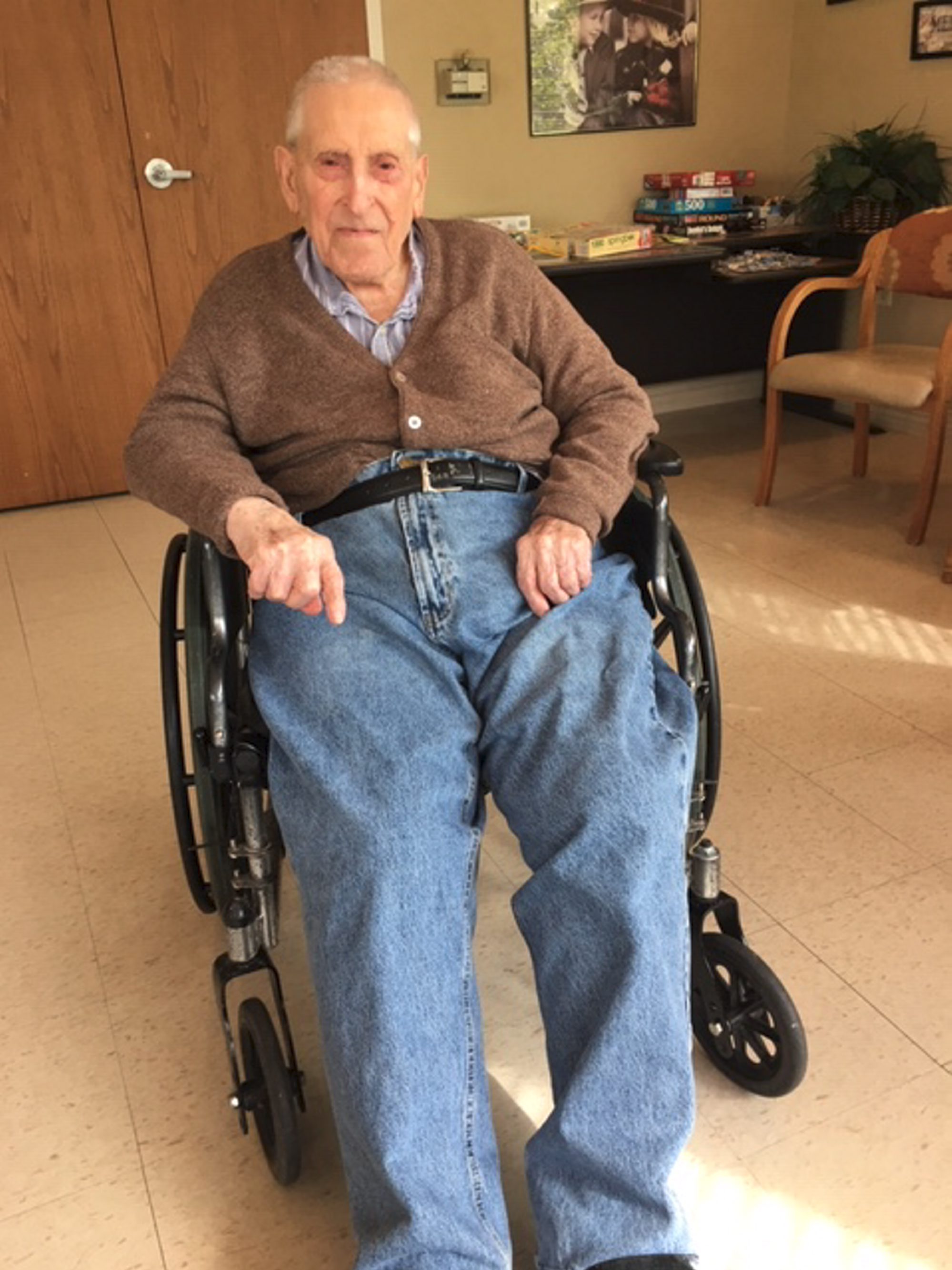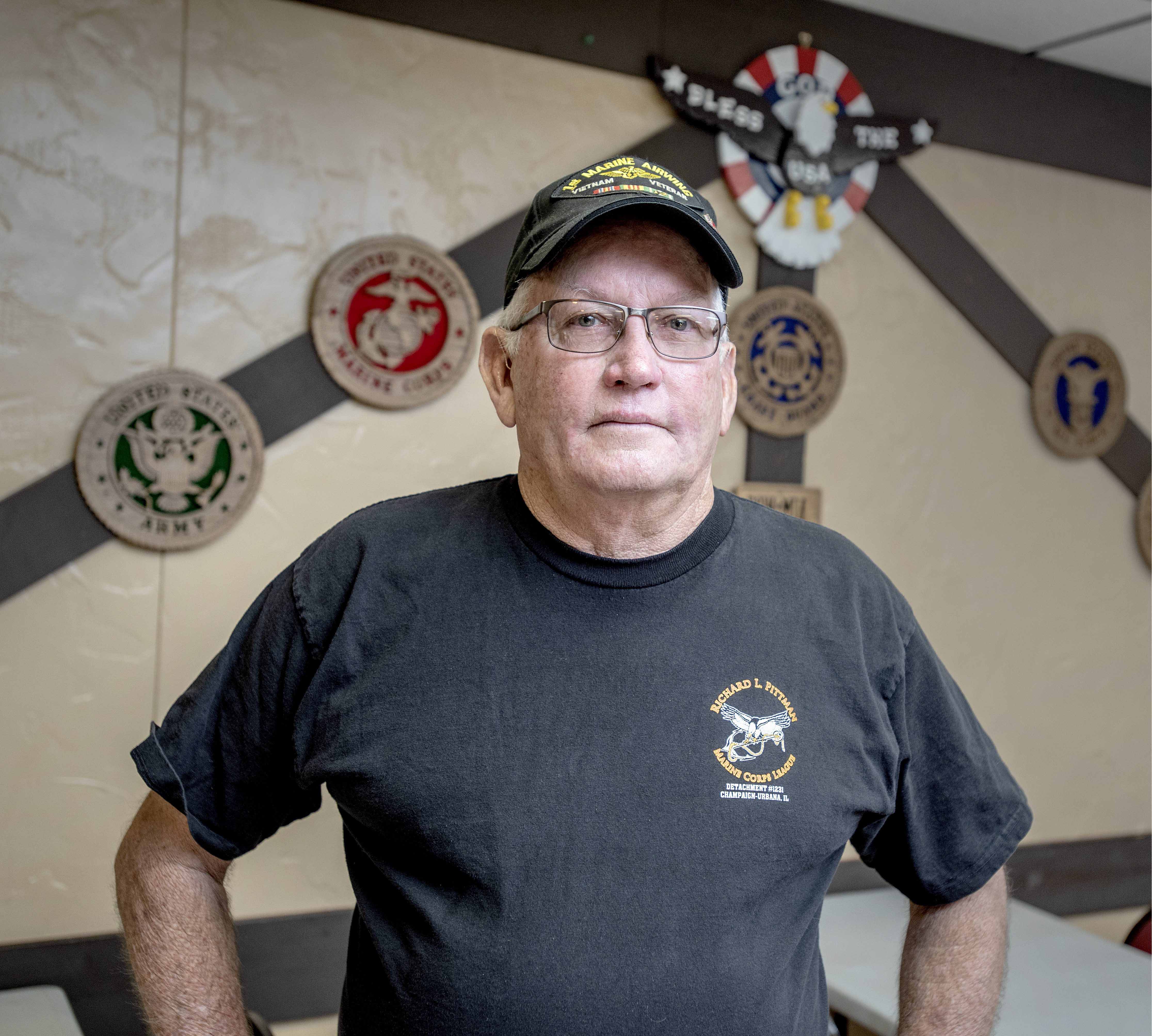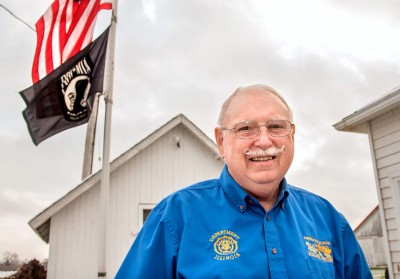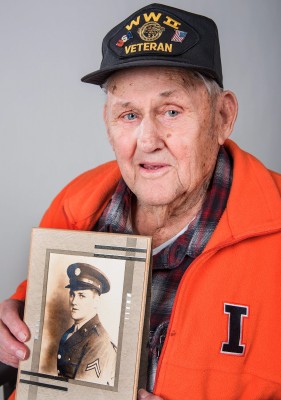James Paul Lafary
By Paul Wood

Photo By Paul Wood
PAXTON — James Paul Lafary stayed on the ground, but saved many bomb crews from crashing after they came under attack.
The 101-year-old World War II veteran served stateside and overseas during the “good war.”
As his son, James, says, “He taught how to get bombers back up after they’d been shot up.”
Growing up a country boy in Fulton County, Lafary was dirt poor.
He walked five miles to school, with a new pair of shoes as the year began.
“By Christmas, the sole wore out, so my foot was bare against the ground,” or snow, Lafary said. “I didn’t have 75 cents to get the sole fixed.”
He enlisted in 1943, already married and eligible for a deferment. Because of high test scores, he was assigned to be an instructor in what was then called the Army Air Force.
“I was assigned to the electricians. I didn’t know much about electricity, but I was supposed to teach it,” he recalled.
“I said I’d like to work on airplanes,” he said, and got his wish.
At one point, he was at Chanute Air Force Base as a mechanic. He was stationed in Lincoln, Neb., for a month, where he was able to live with his wife, then orders took him to California.
He took a six-week course in 10 days to teach aircraft mechanics. It was lucky for all involved.
For a while, he thought he’d be sent to the Philippines, but he ended up on the Queen Mary to England.
The former luxury cruiser ended up hauling more than 10,000 men at a time across the Atlantic.
“It was fast enough that it could outrun the (German) submarines,” he said.
Lafary said troops were required to wear life vests whenever they were on the main deck, but it wouldn’t have helped them.
If you fell off, you were written off.
“There was strict radio silence,” he said, so no other craft could help. And the Queen Mary wasn’t about to come to a stop, because it would take a full hour to get back to the speed needed to outrun the Germans.
He landed in England, though he was never told where, and sent to a base.
“My job was how to get airplanes home,” he said.
One night, another airfield just a few miles away was hit by German bombs.
Then, it was on to Italy, with a one-night stop in northern Africa.
He served in Italy for nine months, with a memorable 10-day tour of Rome to break it up. They traded cigarettes for grapes and had a good time.
His mission in Italy: Teach Allied planes to get over the Alps, often with tanks full of fuel and bombs to weigh them down, or little fuel on the way back.
Some flight crews took his mechanics classes. They knew a lot about their planes, he said, but not strategies for problems such as the Alps.
“They paid attention,” he said.
He said four B-24 Liberator bombers went over the mountain chain and came back, crediting Lafary with their success. He said 30 to 40 men were probably saved from accidents.
Others might have ended up POWs in Switzerland, not as harsh as the German stalags, he said. Supposedly neutral Switzerland held about 1,000 American fliers by the summer of 1944.
He did experience flight once in a plane that had trouble, with no parachute. The bomber landed safely in Africa.
Lafary returned to the U.S. in 1945, farmed for a while, then taught hydraulics for 30 years at Chanute, becoming a supervisor.
Do you know a veteran who could share a story about military service? Contact Paul Wood at pwood@news-gazette.com.
Read more stories from local veterans:
 William Phalen
MONTICELLO — Cpl. William Phalen served in the Marines as a helicopter avionics tech. He was in Vietnam and also did rel …
William Phalen
MONTICELLO — Cpl. William Phalen served in the Marines as a helicopter avionics tech. He was in Vietnam and also did rel …
 Wayne Wagner
BUCKLEY — Sent to Easter Island during the Vietnam War, Wayne Wagner worked at an Air Force base with generator power an …
Wayne Wagner
BUCKLEY — Sent to Easter Island during the Vietnam War, Wayne Wagner worked at an Air Force base with generator power an …
 Robert Collins
FARMER CITY — Robert Collins served in Africa and invaded Sicily, then and southern France. He then had to fight his way …
Robert Collins
FARMER CITY — Robert Collins served in Africa and invaded Sicily, then and southern France. He then had to fight his way …